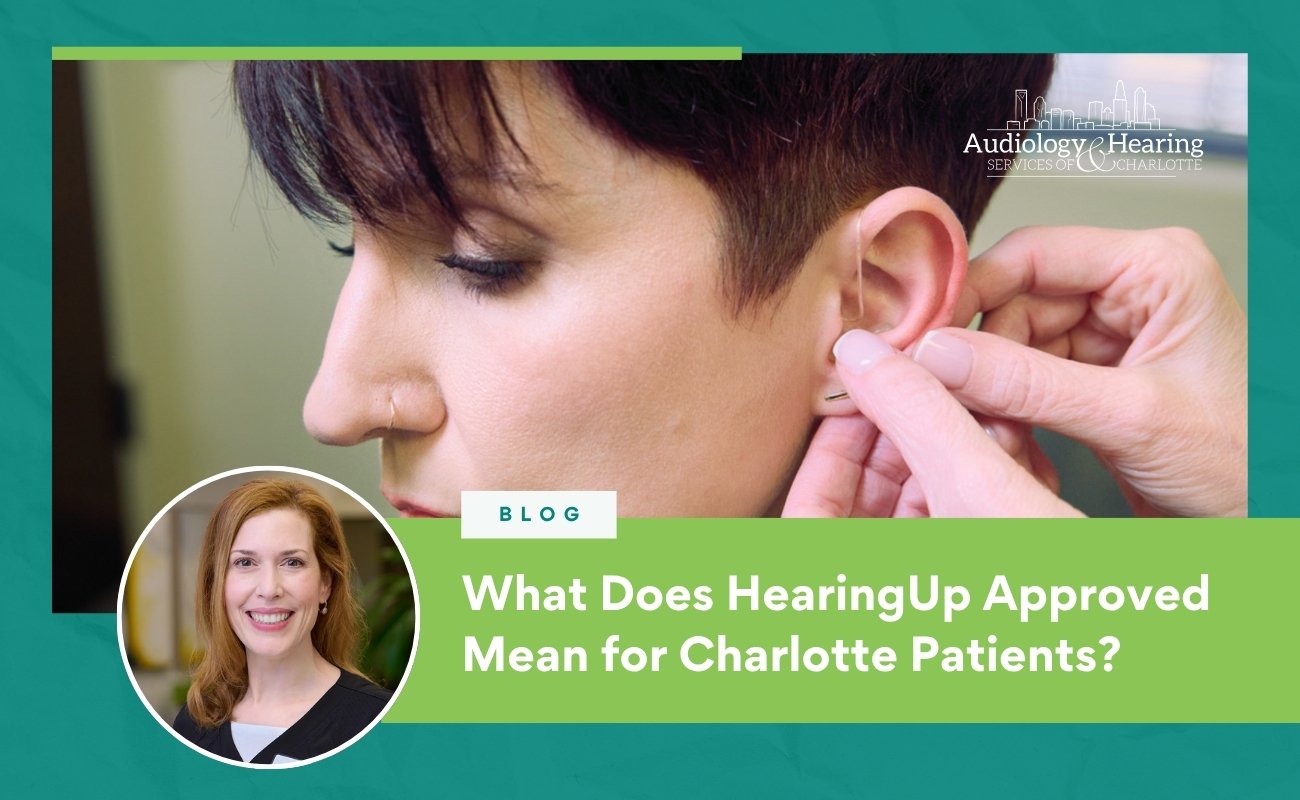
The Link Between Cardiovascular Health and Hearing Loss

Your heart and ears might seem unrelated, but they're more connected than most people realize. We've noticed this connection firsthand with many patients in our Charlotte practice – those managing heart conditions often experience hearing challenges too.
Understanding the Heart-Hearing Connection
Think of your inner ear as a garden that needs constant watering. The tiny hair cells that help you hear rely on good blood flow, just like plants need water. When blood vessels narrow or harden from heart problems, these delicate cells can wither away, causing hearing loss that can't be reversed.
One patient, a 67-year-old retired teacher with a history of heart disease, came to us confused about her sudden difficulty hearing her grandchildren. After testing, we discovered mild hearing loss that was likely connected to her cardiovascular condition.
"I never thought my heart medication might affect my hearing," she told us during her follow-up appointment.
How Does Heart Health Impact Your Ears?
The connection works in several ways:
Your inner ear has just one blood supply line – a single artery that delivers oxygen. If your circulation isn't strong, this limited pipeline can't deliver enough nutrients to keep hearing healthy.
Blood vessel damage from heart conditions doesn't just affect your heart – it impacts tiny vessels in your ears too.
And if you've had a stroke, it might affect the parts of your brain that process sound, making it harder to understand speech even if your ears are working fine.
Common Warning Signs
Many patients ask us, "How do I know if I'm experiencing hearing loss related to my heart condition?" Look out for these signs:
- Finding yourself saying "What?" more often in conversations
- Turning the TV volume up higher than others prefer
- Struggling to follow discussions in restaurants or gatherings
- Missing high-pitched sounds like birds chirping or children speaking
- Noticing ringing in your ears, especially after physical exertion
Taking Care of Both Your Heart and Ears
The good news? The same healthy habits that protect your heart also benefit your hearing:
Taking a daily walk improves circulation to your ears. Swimming, biking, or dancing work too – whatever keeps you moving.
Heart-healthy foods like leafy greens, berries, and fish rich in omega-3s also nourish the blood vessels serving your inner ear.
Maintaining healthy blood pressure takes stress off the tiny blood vessels in your ears. We've seen patients improve their hearing stability just by getting their blood pressure under control.
What Happens During a Hearing Check-Up?
Many patients with heart conditions put off hearing tests because they're focused on their cardiovascular health. But checking your hearing doesn't have to be complicated or time-consuming.
When you come in, we'll talk about your health history and any hearing concerns. We'll look in your ears, test how you hear different pitches and tones, and see how well you understand speech, especially with background noise (which is often the first challenge people notice).
The whole process usually takes less than an hour, and it gives us a clear picture of your hearing health. It's painless and actually quite interesting – many patients tell us they enjoy learning about how their hearing works.
Solutions That Fit Your Life
If we do find hearing loss, today's solutions are nothing like the clunky hearing aids you might remember from decades past.
Modern devices from brands like Oticon, Phonak, Starkey, and Widex are smaller than ever and packed with smart technology. Many connect directly to your phone for easy adjustments, and some can even track health data like steps or detect falls – a nice safety feature for anyone with heart concerns.
During fitting, we use specialized microphone measurements to verify exactly what you're hearing, then fine-tune the settings for your specific hearing profile and lifestyle.
For many heart patients, we also recommend accessories that make daily life easier – like devices that stream TV audio directly to your ears, or systems that help you hear better in noisy restaurants.
We also offer coaching sessions to help you and your family adapt to new hearing technology. These sessions can make a big difference in how quickly you get comfortable with better hearing.
Why Not Wait and See?
We sometimes hear, "I'll just wait until my hearing gets worse." But here's why that's not ideal: your brain needs consistent sound input to stay sharp. When hearing fades gradually, your brain loses practice processing certain sounds, making it harder to adapt to hearing aids later.
Plus, untreated hearing loss can lead to isolation and less physical activity – both bad news for heart health. Keeping your hearing strong helps you stay connected, active, and engaged.
Let's Talk About Your Hearing Health
Our audiologists – Dr. Melissa Karp and Dr. Ivy Saul – bring extensive experience in connecting hearing care with overall health. We understand the unique concerns of patients with cardiovascular conditions.
If you've noticed any changes in your hearing, especially if you have heart issues, we'd love to help. Give us a call at 704-412-7975 to schedule a hearing check-up at our Charlotte office.
Your heart and ears deserve the same careful attention – and taking care of both will help you enjoy the sounds and conversations that make life rich.

Melissa Karp is a board-certified audiologist with special expertise in tinnitus treatment, auditory processing disorder (APD) evaluation, hearing aid fitting and aural rehabilitation.

Related blog posts
Contact us
Get in Touch
Ready to start your journey to better hearing?



Charlotte, NC 28226



